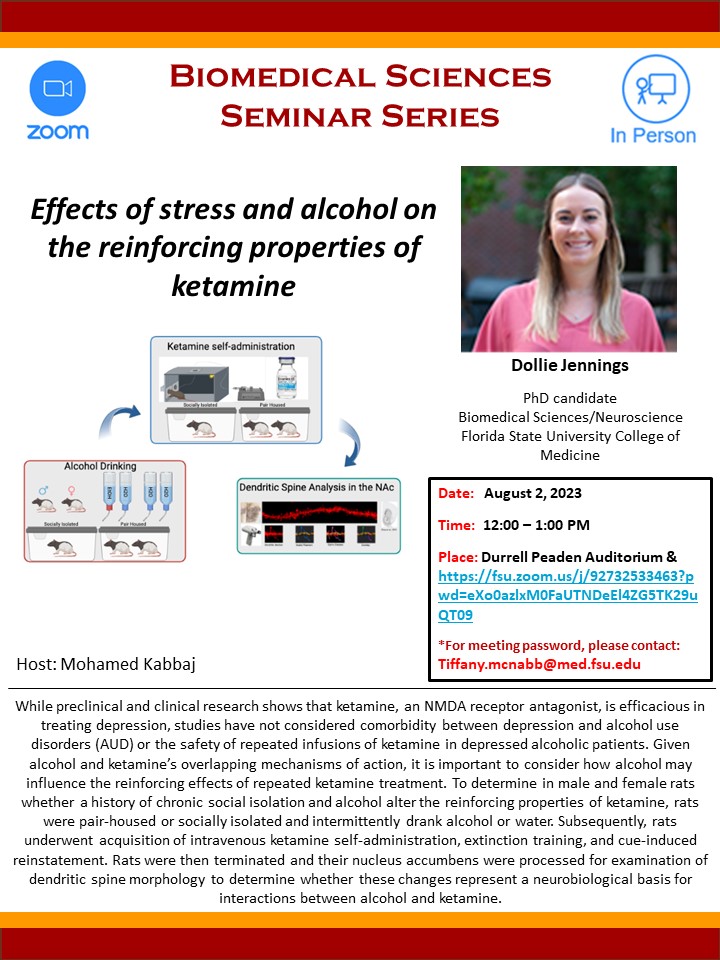BMS Seminar Series: Effects of stress and alcohol on the reinforcing properties of ketamine

While preclinical and clinical research shows that ketamine, an NMDA receptor antagonist, is efficacious in treating depression, studies have not considered comorbidity between depression and alcohol use disorders (AUD) or the safety of repeated infusions of ketamine in depressed alcoholic patients. Given alcohol and ketamine’s overlapping mechanisms of action, it is important to consider how alcohol may influence the reinforcing effects of repeated ketamine treatment. To determine in male and female rats whether a history of chronic social isolation and alcohol alter the reinforcing properties of ketamine, rats were pair-housed or socially isolated and intermittently drank alcohol or water. Subsequently, rats underwent acquisition of intravenous ketamine self-administration, extinction training, and cue-induced reinstatement. Rats were then terminated and their nucleus accumbens were processed for examination of dendritic spine morphology to determine whether these changes represent a neurobiological basis for interactions between alcohol and ketamine.
Durrell Peaden Auditorium

